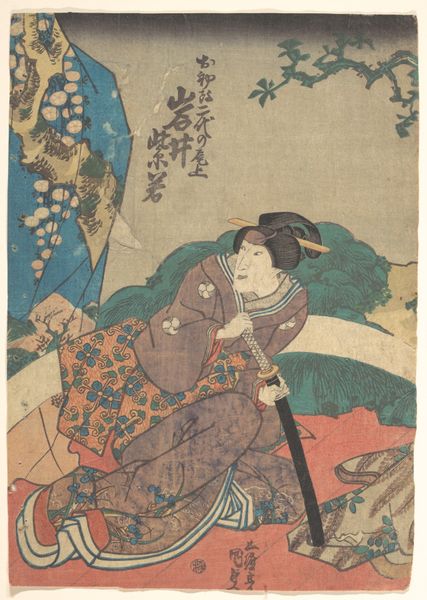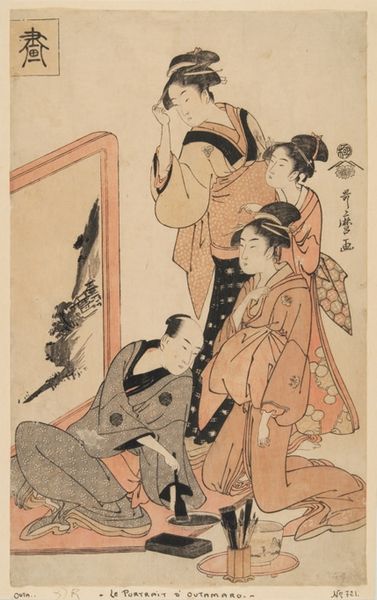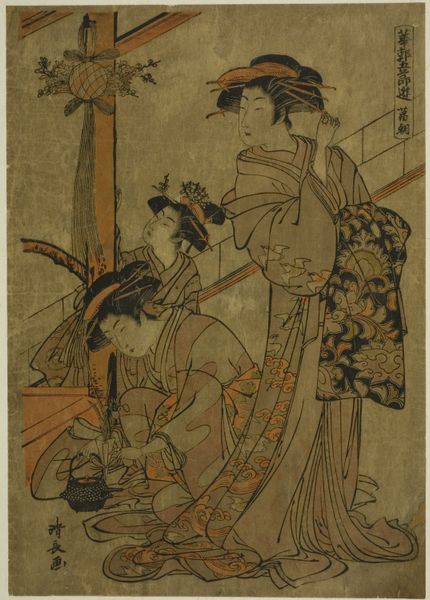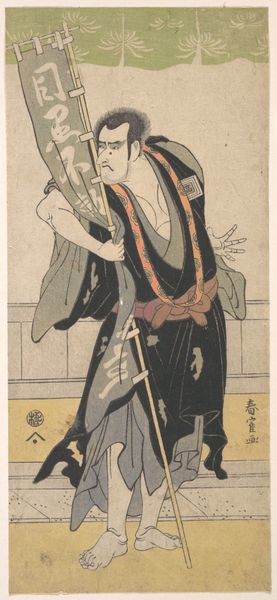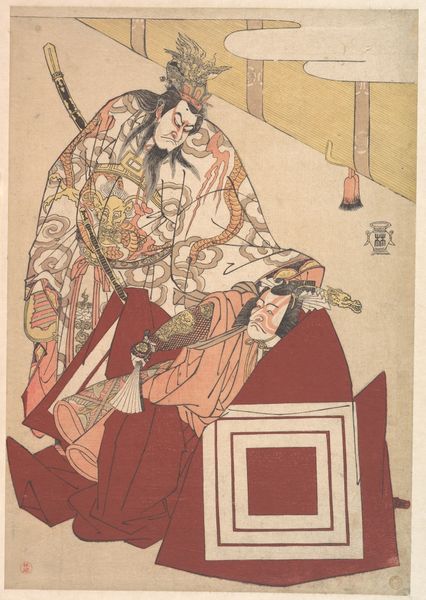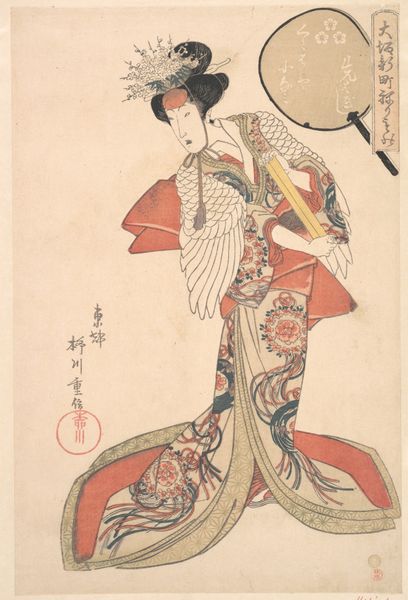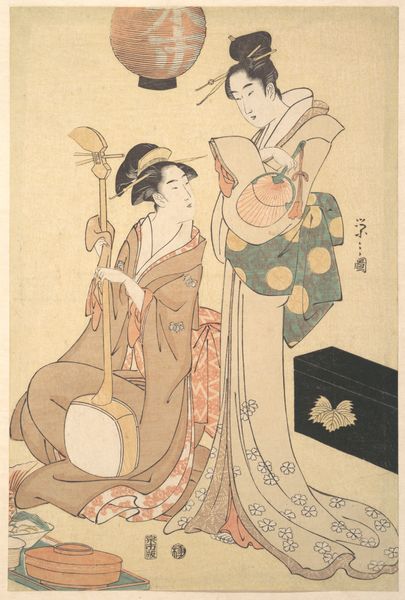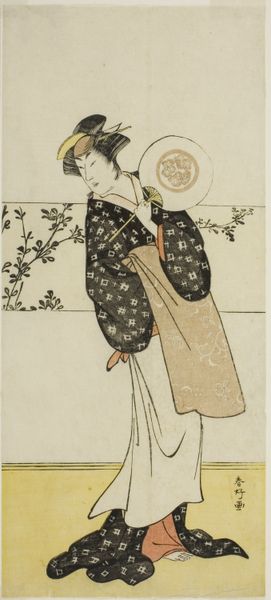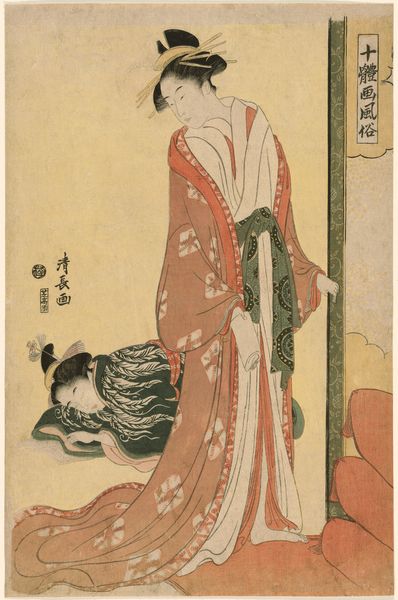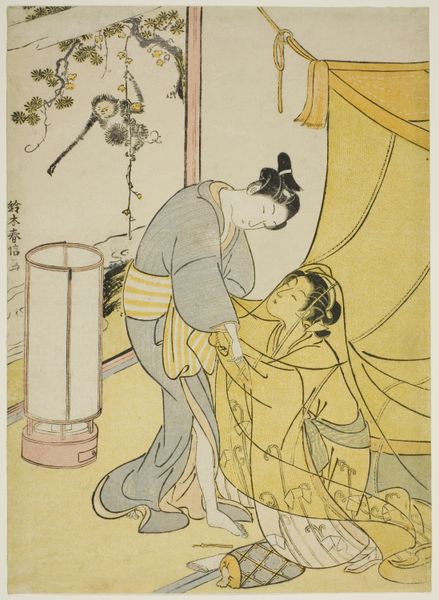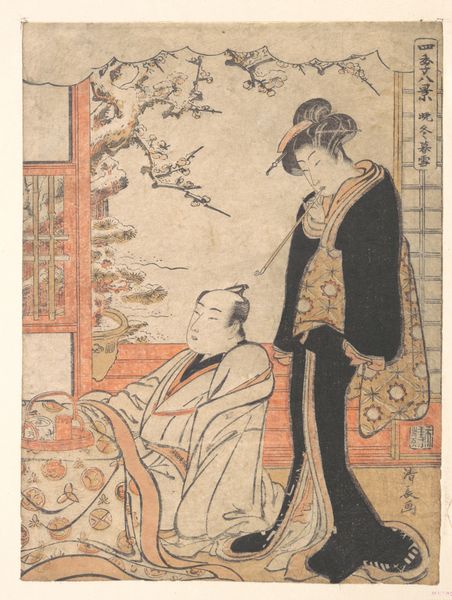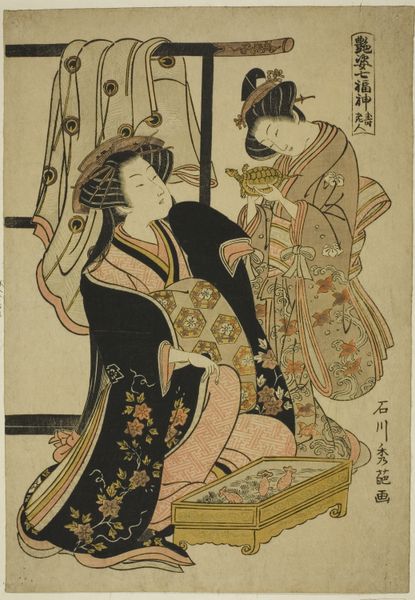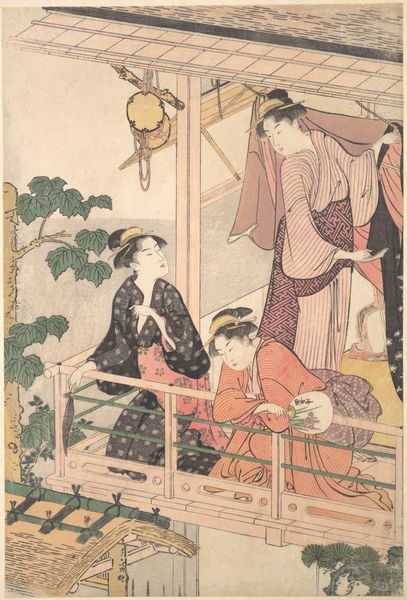
print, ink
#
portrait
# print
#
asian-art
#
ukiyo-e
#
figuration
#
ink
Dimensions: 14 5/16 × 9 13/16 in. (36.3 × 25 cm) (image, sheet, ōban)
Copyright: Public Domain
Kitagawa Utamaro’s woodblock print, "Prostitute Zetō of Ebiya House," captivates with its subdued palette and delicate lines. The composition centres on Zetō, holding a doll, her gaze lowered in quiet contemplation. The soft washes of color and intricate patterns on her kimono create a visual harmony, evoking a sense of intimacy and elegance. Utamaro masterfully uses line and form to convey emotion and status. The sinuous lines of Zetō's figure and the doll contrast with the geometric patterns of her clothing, reflecting the complex interplay between personal identity and social role. The doll itself functions as a signifier, a symbol of idealized beauty and societal expectations imposed on women during the Edo period. Ultimately, Utamaro’s work challenges fixed meanings, prompting us to reflect on the representation of women and the fluid boundaries between art, commerce, and culture in 18th-century Japan.
Comments
No comments
Be the first to comment and join the conversation on the ultimate creative platform.
